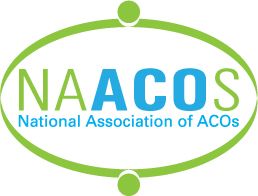
CMS Announces Updates to ACO REACH for 2024

The revisions to the ACO REACH model are expected to add predictability and stability while advancing health equity.
CMS announced changes for 2024 to its latest
In a statement, Clif Gaus, ScD, president and CEO of National Association of ACOs (NAACOS), expressed appreciation for the improvements to the model. In May 2023, NAACOS had published recommendations to improve the model that the organization had shared with CMS.
ACO REACH
The changes fall into 3 categories:
- Increase predictability for model participants by:
- Reducing escalation of beneficiary alignment minimum for new entrants and high needs population ACOs
- Adding a 10% buffer on alignment minimums for all ACO types
- Refining eligibility criteria for alignment to a high needs population ACO
- Modifying the financial guarantee policy
- Updating the provisional settlement to reflect 12 months of performance experience instead of 6 months,
- Applying 3 symmetric risk corridors the retrospective trend adjustment
- Protect against inappropriate risk score growth and maintain consistency across CMS programs and Center for Medicare and Medicaid Innovation (Innovation Center) models by:
- Revising the risk adjustment methodology by using 67% of the risk scores under the current 2020 risk adjustment model and 33% under the revised risk adjustment model
- Further advance health equity through:
- Revisions to the composite measure utilized for the health equity benchmark adjustment (HEBA) to incorporate Low-Income Subsidy status and State-based Area Deprivation Index
- Expanding access to the HEBA to increase the impact of it
- Adding pulmonary rehabilitation to the nurse practitioner and physician assistant services benefit enhancement
“We believe these changes will satisfy many concerns and stabilize future participation,” Gaus said.
NAACOS is also encouraging CMS to add features of ACO REACH into the Medicare Shared Savings Program (MSSP), which is the permanent ACO track. In July, the organization published that it had been advocating for CMS to offer a full-risk track in MSSP to provide a better bridge to the ACO REACH model. NAACOS is calling this suggested track Enhanced Plus.
“Enhanced Plus could imbed some elements only available in Innovation Center models into MSSP, allowing more ACOs to innovate themselves and deliver higher quality patient care,” David Pittman, director, communications and regulatory affairs, NAACOS,
CMS did include a request for comment on the idea of a higher risk track in MSSP as part of the proposed Medicare Physician Fee Schedule rule, he noted.
“Using MSSP as a chassis for innovation while infusing lessons learned from Innovation Center models into a permanent program is another path for stabilizing and growing participation in ACOs,” Gaus said.
Newsletter
Stay ahead of policy, cost, and value—subscribe to AJMC for expert insights at the intersection of clinical care and health economics.








